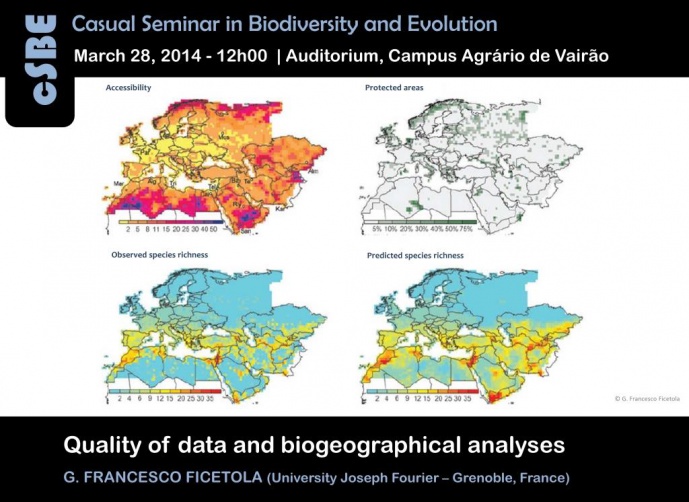QUALITY OF DATA AND BIOGEOGRAPHICAL ANALYSES

CASUAL SEMINAR IN BIODIVERSITY AND EVOLUTION

Ecological modelling is a central topic in ecology and biodiversity conservation, but must be based on sound species distribution data. The incompleteness of information on biodiversity distribution is a major issue: quantifying the amount of biodiversity that still remains unknown in a given area is challenging. First, we analysed some of the data most frequently used for distribution models in amphibians (IUCN species ranges; data from online databases) and assessed their associated error. Second, an analysis of reptiles from Mediterranean islands showed that poor data quality in certain areas may bias biogeographical analyses. Finally, we assessed relationships between species richness of reptiles in the Palaearctic and accessibility. Known reptile richness strongly decreased in the most remote regions: accessibility was the variable best explaining reptile species richness in remote areas. Accessibility can be integrated into ecological models to estimate the actual species richness, even in remote areas that have been scarcely monitored so far.
G.Francesco Ficetola (http://digilander.libero.it/lyrgus/) is currently researcher at the Univ. J. Fourier of Grenoble (France). He is interested in the integration of molecular tools with evolutionary biology and macroecology, to understand the impact of human activities on biodiversity.
Host: Miguel Carretero, Applied Phylogenetics
Image credits: G. Francesco Ficetola